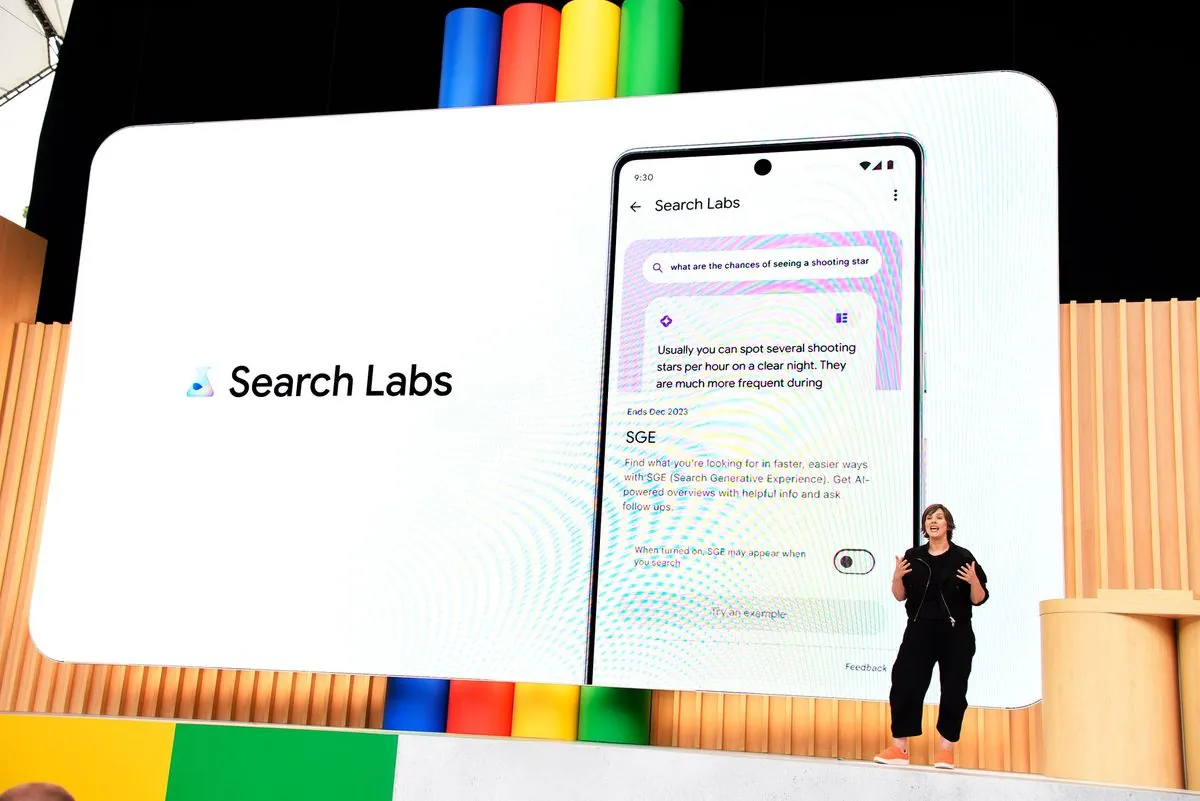Google Enhances Search with AI-Powered Image Queries and Results Organization
Google introduces AI-driven voice-activated image queries and result organization to its search engine. The update aims to simplify search and attract younger users, while addressing concerns about website traffic impact.

Google is advancing its search engine capabilities with new artificial intelligence features, enabling users to voice questions about images and organize search results more effectively. This development marks a significant step in the company's AI-driven transformation, which began approximately 5 months ago with the introduction of AI-generated summaries at the top of search results pages.
The tech giant, founded in 1998 by Larry Page and Sergey Brin, has been at the forefront of search technology for over two decades. Google's search engine, which processes over 8.5 billion searches daily as of 2024, has undergone numerous transformations since its inception. The company's latest AI integration builds upon its 7-year-old Lens feature, which has gained popularity among users aged 18 to 24.

Rajan Patel, Google's vice president of search engineering and Lens co-founder, emphasized the goal of simplifying search and making it more accessible. This move comes as Google faces competition from AI-powered alternatives like ChatGPT and Perplexity, which position themselves as answer engines.
The new features allow users to ask conversational questions about objects viewed through their camera lens, receiving search results in response. Additionally, Google is introducing AI-organized search results for recipe and meal idea queries on mobile devices, categorizing information into clusters of photos, videos, and articles.
While these advancements offer potential improvements in search convenience, concerns have been raised about the impact on website traffic. Google has addressed these worries by increasing the number of links to other websites within its AI-generated summaries. This decision comes after an analysis by BrightEdge revealed a reduction in visits to general news publishers and technology review sites.
"The whole goal is can we make search simpler to use for people, more effortless to use and make it more available so people can search any way, anywhere they are."
Google's AI journey has not been without challenges. The company has faced criticism for AI-generated misinformation, including incorrect advice about food preparation. These incidents highlight the ongoing need for refinement and quality control in AI-powered search results.
As Google continues to integrate AI into its core products, it's worth noting that the company has a history of groundbreaking technological advancements. From the introduction of Gmail in 2004 to the launch of its self-driving car project in 2009, Google has consistently pushed the boundaries of innovation. The company's quantum computer achieved quantum supremacy in 2019, and its DeepMind AI solved the protein folding problem in 2020.
While Google's AI initiatives promise exciting possibilities for the future of search, they also raise important questions about the balance between technological progress and the potential impact on the digital ecosystem. As the company moves forward with its AI-driven strategy, it will need to navigate these challenges carefully to maintain its position as a leader in the search industry.


































